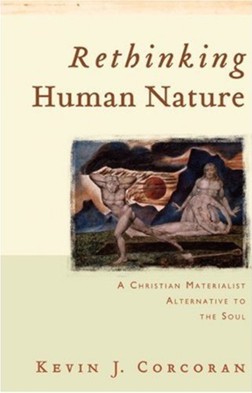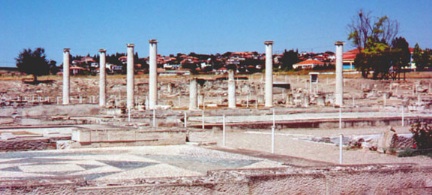
Over the next couple of weeks or so I would like to look at two books, not new but fairly recent, that think through some ideas on body and soul. The first is by Kevin Corcoran, Rethinking Human Nature: A Christian Materialist Alternative to the Soul where he develops a constitution view of human persons. Professor Corcoran is a philosopher teaching at Calvin College specializing in philosophy of mind, metaphysics, and philosophy of religion – a philosopher who tries to connect philosophy with bible, theology, faith, and science.
The second book is by Joel Green, now a professor of New Testament interpretation at Fuller Theological Seminary. His book Body, Soul, and Human Life: The Nature of Humanity in the Bible looks at a biblical view of human nature and argues that a dualistic view of the human person as material body and immaterial soul is inconsistent with both science and Scripture. Green is a biblical scholar who works to connect bible, theology, and faith with philosophy and science.
I, on the other hand, am a scientist who would like to connect science with philosophy, bible, theology, and faith. Join us it should be interesting.
To get this going let’s start simple, with a little question.
What kind of things are we?
Corcoran poses the problem like this (pp. 11-13):
A common Christian view through the centuries has held that we are immaterial souls
– contingently and tightly joined to bodies on earth but capable of
existing without them. The essence of our being is this immaterial soul
and this is what is preserved after death and in the age to come.
But this is decidedly not the common view in our modern (or postmodern) western culture. As Corcoran puts it:
… today the dominant view among philosophers, ethicists, neurobiologists, psychologists, and cognitive scientists is a “nothing but” view of materialism, the view that creatures like us are “nothing but” complicated neural networks or mere biological beasts. (p. 12)
The question of human nature has profound ramifications and impacts christian views of such topics as cloning, abortion, stem cell research, and even organ transplants. The question of human nature also touches on the afterlife and the meaning of creation “in the image of God.”
We ran a short series awhile ago looking at the science of sin (Part One and Part Two). This series explored the idea that what
we are and how we behave is intimately related to the make up of our
physical bodies. Not only that but how we choose to behave and to
think has an impact on the make up of our physical being. Virtue, like
vice, can change the structure of the human brain. This information also impacts the way we think about human nature – and how we view ourselves.
Corcoran presents a version of materialism – not nothing-but materialism, which is a view inconsistent with Christian faith – but a version of materialism which keeps essential insights from the dualist view of of human nature while presenting a view of humans as what I would call embodied unities. This is, according to Corcoran, a Christian materialism. He doesn’t claim definitive answers, but opens his ideas for discussion.
This brings us back to the little question above as a way to begin this discussion – a question we can express in several ways, take your pick…
What kind of things are we?
Are we, in our essence, immaterial things or material things – or both?
If both, what kind of compound beings are we?
Is a materialist view of human persons and human nature consistent with the Christian faith?
If you wish to contact me, you may do so at rjs4mail[at]att.net

